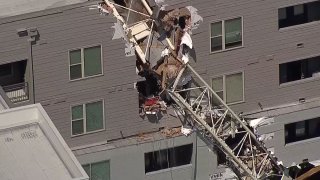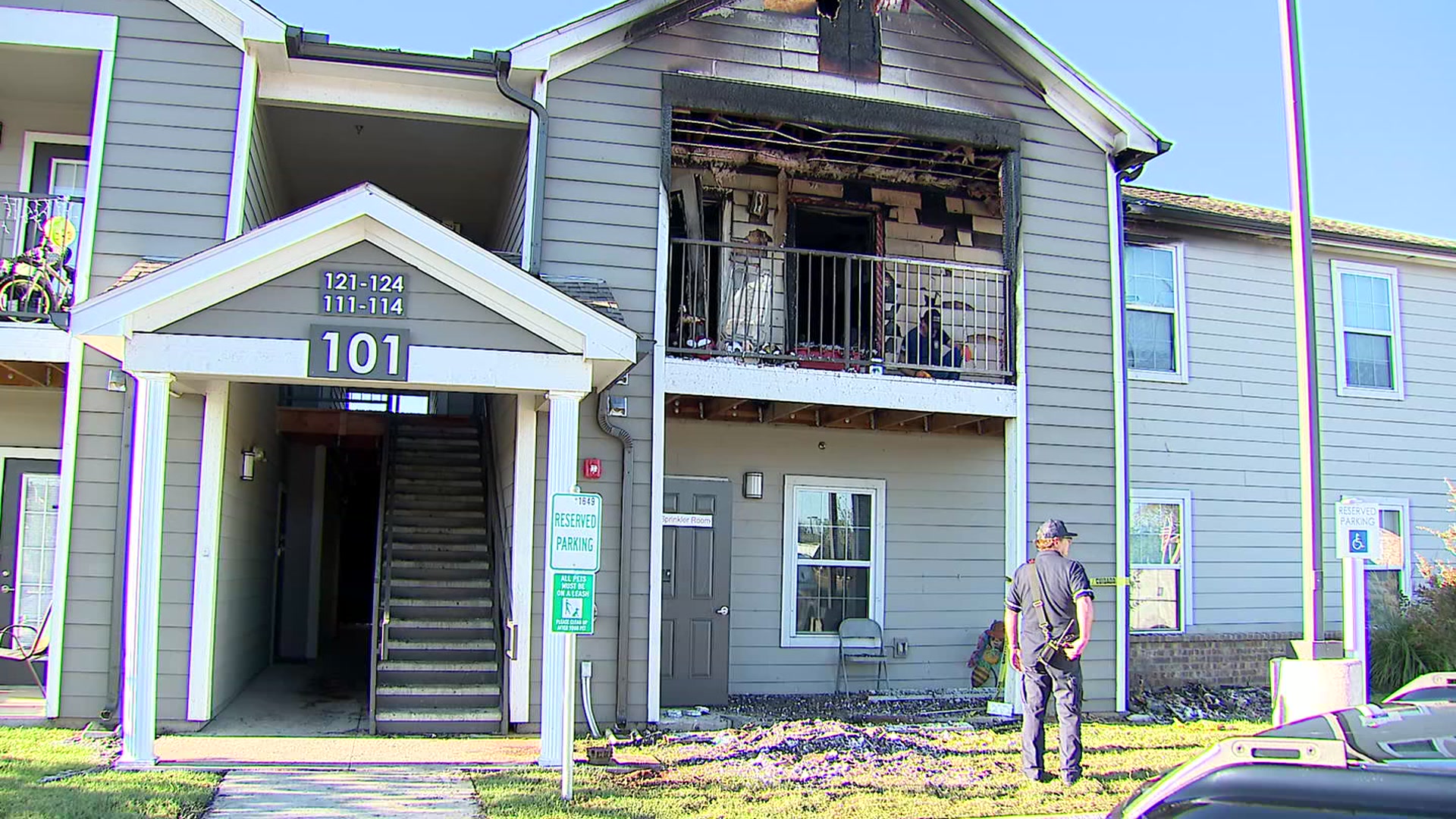
It's now been a year since a crane collapsed into the Elan City Lights Apartments in downtown Dallas, killing one woman, injuring five others and leaving 500 residents homeless and looking for a new place to live.
One year later, the cause of the crash that killed 29-year-old Kiersten Smith is still unclear despite an investigation by the Occupational Safety and Health Administration (OSHA).
In December, OSHA fined the owner of the crane about $26,000 but failed to shed light on what caused the collapse.
The citations against Bigge Crane and Rigging Co. said that the company did not inspect for loose or dislodged bolts on the crane and did not follow the manufacturer's instructions to remove bolts that showed rust and address surface corrosion of structural tower members.
But Thomas Barth, a former crane operator and inspector who now works as an expert witness in court cases involving crane safety, said that the violations that OSHA cited did not explain the crane collapse.
“OSHA is just citing them for rust on the crane and things like that,” Barth said to The Dallas Morning News, adding that many cranes could be cited for exterior rust. “But the surface rust had nothing to do with this crane falling down.”
Local
The latest news from around North Texas.
Randy Smith, corporate counsel for Bigge, agreed that the citations did not point to any definitive cause for the collapse.
Kiersten Smith's family, along with dozens of former residents, including UFC fighter Macy Chiasson, filed or joined a lawsuit against the crane and apartment company leasing the crane.
Bigge released a statement a month after the crash, citing the cause of collapse on high winds and not operator failure.
"We believe that extreme local wind conditions caused this crane accident,” Bigge said.
According to the National Weather Service, winds reached up to 80 mph that day at nearby Dallas Love Field during a severe thunderstorm. But according to manufacturer specifications, the crane, a Peiner SK 415-20, should have been able to withstand winds of up to 95 mph.
Bigge said in the same statement that the operator had placed the crane in "appropriate out-of-service mode" the day prior to the collapse. But a nearby crane remained stable in high winds.
An operator should unlock the brake on a crane before leaving work, allowing it to swing freely in the direction of the wind, Barth said. And if everything had been done properly, and the recorded winds speeds were accurate, the crane "shouldn't have come down," Barth said.
Several months after the investigation by OSHA was completed, Elan City Lights Apartments still showed signs of damage, with damaged cars and ripped-off walls.
But the cause of the collapse is still up in the air. OSHA spokesman Jose Rodriguez said recently that there is no new information.
“I think really the only way [the cause is] ever going to get sorted out is probably through the lawsuits,” Randy Smith said.
The lawsuit seeks more than $1 million in damages from Bigge, as well as Greystar, the company that owns Elan City Lights and The Gabriella -- the unfinished complex on which the crane was operating.
Photos: Crane Collapses in Downtown Dallas
State Sen. Royce West (D-Dallas) released a statement Tuesday on the crash and his worry over work-site safety.
"With all the emphasis Texas places on growth and economic development, one might think that work-site safety would be a greater concern," West said. "But at the same time, while we pride ourselves on our business-friendly climate, Texas, as a rule, generally shuns what some would call business-stifling rules and regulations."
In the statement, West, who is currently in a runoff for the Democratic nomination in a U.S. Senate race, also announced his interest in furthering crane operation and workplace safety legislation.
"It is a matter that I have an interest in taking a closer look at to see if some agreement with the industry and state leaders can be reached that will address workplace safety issues in Texas," West said. "I expect an uphill battle. The last bill on crane safety in Texas was filed in 2009."
Over the last decade, OSHA has cited Bigge for 18 safety violations and the Dallas crane collapse is not the first fatal accident for the company.
In one high-profile case, a worker died at an Arkansas nuclear power plant in 2013 when a crane erected by Bigge collapsed.
Jason Friedman is an attorney representing several of the residents in the ongoing lawsuit that Randy Smith said is "the only way the cause is ever going to be sorted out."
“There are people who are injured, there’s a woman who died, and there’s no explanation for anything,” Friedman said.



